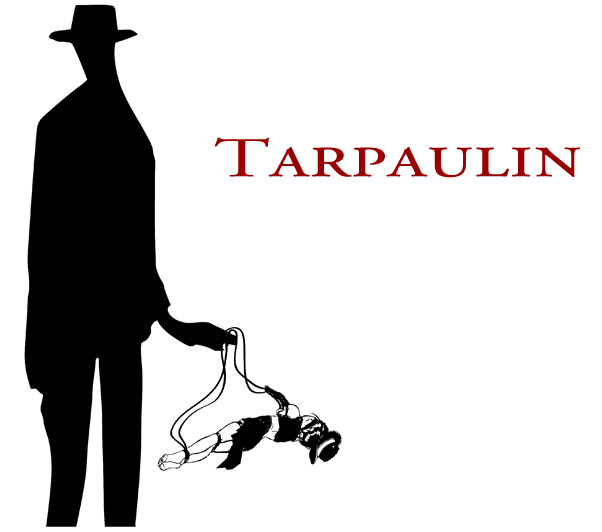 Songs of Insurgency
Songs of InsurgencySpencer Dew
Vagabond Press, 2007
ISBN: 0975571648
$12
Reviewed by Benjamin Buchholz
Spencer Dew’s Songs of Insurgency tempts, at the onset, a reader to regard it as pulp fiction, with all the trash, horror, urban decay and inanity of modern life ladled in a roux prose of fragmented thoughts basting among loosely simmered run-ons. He starts with phone sex in the story “Blow,” imagines a camp for teaching the finer points of suicide in “The Exit Colony,” and flows through other snapshots of noir, sadism and numbness until reaching his peroration in the longish tale “At the Darfur Bake Sale.” Songs of Insurgency tempts the reader, but does not wholly convince the reader to accept it as pulp because underpinning it, throughout, in varying levels of sublimity, the work circles but never quite states that it isn’t actually about 9/11, or about Darfur, or about phone sex. It’s about cliché. And saturation. And how our perceptions as Western readers and intellectuals cannot easily be divorced from the media in which we live.
This line from “Darfur Bake Sale” most perfectly captures the juxtaposition of smut within the larger contemplation of cliché and media saturation:
When I fuck, I fantasize about fucking. Maybe that’s a paradox, but then I come, hard, and can be done with the whole thing. The revolution must not be like that.
Throughout, the meta-conflict Dew establishes by writing low and thinking high finds its embodiment in the consistent voice of the narrator: a man, often represented as an art school graduate, always speaking/writing in haute terms, words like "multivalent" and "solipsism" and "very romantic in that De Quincey kind of way," while at the same time caught red-handed amongst mounds of American kitsch: rubber reproduction tomahawks, Victoria’s Secret catalogues, Pokemon 2000 posters.
This double-layer of pretension surrounds the narrator: language and environment. He can’t seem to think with clarity despite his desire to bring forth a manifesto. To add to the drowning effect, Dew’s protagonists are often lost within this milieu, unable to realize they are lost. For example, in “The Heart of It All” the protagonist is Kim, a yoga teacher who has realized that Vedic eating includes meat. Her thoughts spill over the pages as the narrator follows her through the supermarket, encouraging her towards discussions on tainted etymologies – "domestic" having been co-opted by "domestic terrorism" so that "homey" fabrics purchased for a Halloween costume are imbued with hints of extremist destruction. The narrator fails. Kim rattles on, buying bags of "googley eyes, popsicle sticks free-of-ice-cream . . . sequins and rhinestones, star-shaped confetti and glitter-glue, adhesive-backed Velcro tabs, doll arms and doll legs." It’s all excess, an aggregate of materialism that keeps Kim cocooned from thinking or acting in a way that might matter. The reader feels for Kim, likes her because of her escapism, dislikes the narrator for his cerebral, cold and imperfectly formed theories of life and art and language. Yet, in the balance, Dew succeeds to show us the tremblingly thin veil that obscures the cesspit of the American ideal.
As a reader you might choose to enjoy scenes of violence that read like retellings of violence, vicarious experience layered on vicarious experience. If so, read Tom Clancy. But, in Songs of Insurgency, little episodes of fantasy and horror, of real life excess layered over academia, capture the numbing cycle of repeated media immersion, this perpetuation of a mythology of cleanliness in war (and in life generally) that most have never experienced but often considered, seen on CNN, on the front pages of Newsweek, embroidered in our collective American unconsciousness and embedded in our language: we react to simulacra of stimulants. We read Clancy to get clean stimulation when in reality we are surrounded by dirty stimulants, never clean except when packaged in McDonald’s Happy Meals or Reality TV. There is no possibility of reality in "story." But there is the possibility of reality behind "story" once disabused of cliché.
Two ways exist to gain the capacity to see (and live) beyond this ethical dilemma in our media-saturated culture. The first is to go there yourself, where the media isn’t, and come back from it changed, with a new quiet ringing inside you. For this, I know not where you will find your particular peace: deep in the Vermont woods, trekking a desert, in ashram or at altar? It doesn’t matter where, really, though the reach of media and language and vicarious experience extends deeper daily. The second way, though, is to form an opinion of it by touching the common darkness itself. This requires no particular meditative calm, but only a keen desire to see/feel/know and a guide to help you in your knowing. For that, I highly recommend a book like Songs of Insurgency where the author cloaks his revelation behind the very things he reviles.
Then, you might laugh aloud when reading what Kim, the protagonist in “The Heart of It All,” says to the war-wounded narrator as she stops shopping for a moment to give him a "constipated smile":
“We’re all so glad you’re OK,” she says, “I mean, assuming you’re OK. OK on the outside. We’re all so glad you’re alive, let’s say. I hope you’re OK. Are you OK?”
***
Benjamin Buchholz is a US Army Officer. His work has received a lot of kind attention lately, including the pieces "Nowords" and "Mailcall" originally published in Tarpaulin Sky. His story "The Cabalfish" appers in the 2008 edition of The Best of the Web. He received four Pushcart nominations last year. For a full bio see http://benjaminbuchholz.blogspot.com/.




